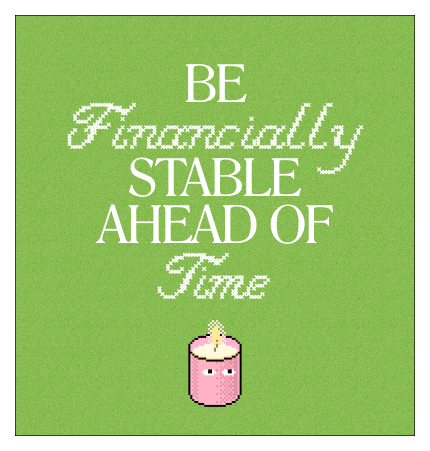Recession Prepping
Recession Prepping
by Caroline Snyder
Fiduciary / Financial Advisor
Instructor of Finance Friends Forever
I don’t know about you, but even though we aren’t technically in a recession yet, it already feels pretty real. My grocery bills have skyrocketed, I’ve become much more price conscious (did you know that Target brand sensitive baby wipes are $0.02/wipe vs. $0.07 for Water Wipes?!), and going to the gas station has become a real bummer. As a response to this change of pace, in the Finance Friends Forever Course, Puno and I have been gathering questions from students to help put some fears at ease and prepare you too.
How much should I be cutting back?
While many people think it's that Matcha Latte that’s messing up your spending plans, there are likely other habits you could shift that would make a bigger difference in your ability to save money. Or, you might actually be fine with the habits you already have!
The only way to actually know what you should be changing is to budget (also known as bookkeeping!).
Learning practical budgeting so that you can make changes in your financial habits is SUCH a powerful skill. It is not the traditional system of writing down all of your fixed expenses and then estimating what you want to spend on other categories and then… failing. It is an introspective deep dive into your current habits and a retooling of systems so that you get on track to meeting your financial goals.
Plus, for any of you that are thinking about taking the jump into Freelancer or Small Business world, you’ll need to learn how to do this (1) to build a profitable business and (2) to make sure you’re good on taxes.
We teach you how to do this in Finance Friends Forever!
Should I approach my credit card debt differently?
If you have credit card debt and you haven’t been prioritizing getting rid of it then now is the time.
Because inflation is up (i.e. prices are increasing) the Federal Reserve has been increasing interest rates to try to make people and companies slow down on borrowing money. Unfortunately that also means that variable debt interest rates have been increasing too.
For example, your credit card debt might have just gotten more expensive.
Let’s say you owe $3,500 on a credit card. Your interest used to be 18%, but now it is 24%.
If you took 5 years to pay off your card with the 18% interest rate you’d pay:
$88.88/month and a total of $1,832.62 in interest
If you have a 24% interest rate you’d pay: $100.69/month and a total of $2,541.27 in interest
The 6% higher interest rate ends up costing you $708.65!
One of the most common types of debt our students have or have paid off first is credit card debt. While hell to the yes, they save hundreds of dollars that they can invest, the biggest lesson is learning to face your debt vs avoiding it. Avoidance comes in so many forms but fortunately, is the most controllable one that truly affects your ability to make money.
The average student borrower takes 20 years to pay off their student loan debt.
Source: Education DataPaying off $20K in credit card debt could take 22 years.
Source: Fox BusinessShould I invest now?
If you have the financial resources to be able to invest then this may be a really good time to invest in the market.
Take this quiz to see if you’re ready to start investing.
Historically, the stock market as a whole has increased in value over time as long as you give it enough time to recover between recessions. That means when the market is down it is a good time to buy. Prices are lower so you get more bang for your buck when the market recovers. That being said, it is impossible to make truly accurate predictions on what the stock market is going to do, so the general advice of “buy low, sell high”, while excellent advice, is in no way a guarantee of success.
What if I get laid off?
It is never fun to lose a job. It is especially stressful to lose a job in a market with high unemployment — that means that there are plenty of other people who will be competing with you for new opportunities.
However, the June 2022 unemployment rate is low — 3.6% (vs. 9.6% in 2010) so if you get laid off there may be another, great employment opportunity waiting for you just around the corner! In general, the best way to deal with a layoff is to be financially stable ahead of time. This means having a debt payoff plan in place, emergency savings in the bank, and a really strong understanding of your spending and bookkeeping. If all of those thvings are true, you will be in a better position to handle unemployment for a few months while you search for a new job.
Also, please file for unemployment. If you were employed before you were paying into the system. That means you’re really just getting the money back that you put in (sort of)! I know some people don’t feel comfortable filing or don’t think they deserve the help, but money is money and you deserve it!
P.S. We will officially be in a recession if GDP falls for two successive quarters. The NBER (National Bureau of Economic Research) will make the announcement if and when that happens.















